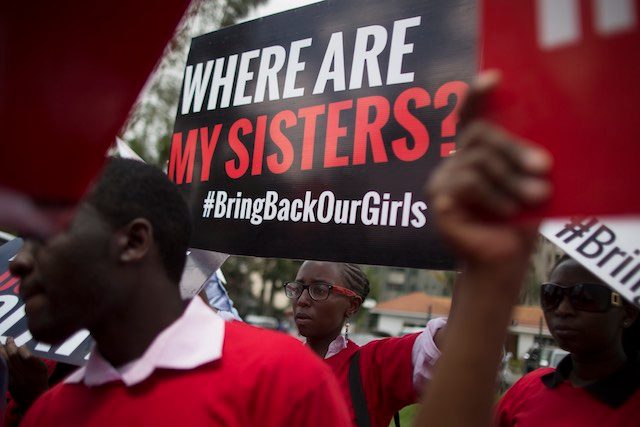SUMMARY
This is AI generated summarization, which may have errors. For context, always refer to the full article.
 Two years ago, Islamist militant group Boko Haram tore through the Nigerian town of Chibok, torching buildings, killingvillagers and snatching almost 300 school girls from their dormitory beds. The brutality of the attack and the mass abduction sparked outrage in the international community with an online campaign that screamed #BringBackOurGirls.
Two years ago, Islamist militant group Boko Haram tore through the Nigerian town of Chibok, torching buildings, killingvillagers and snatching almost 300 school girls from their dormitory beds. The brutality of the attack and the mass abduction sparked outrage in the international community with an online campaign that screamed #BringBackOurGirls.
Many of those girls had not been heard from until a few weeks ago when CNN reported that it had obtained a video of some of the “Chibok Girls”. The proof of life video was reportedly sent to negotiators by their captors and has been viewed by negotiators, some lawmakers and some of the girls’ mothers.
A stolen life
Dr Jennifer Brahman is president of the Intensive Rescue Foundation, an NGO based in Nigeria that provides reproductive and health care services to girls and children. Brahman remembers the Boko Haram attack when the school girls were stolen from their beds and Boko Haram’s continuing reign of terror.
“In 2014, they (Boko Haram) kidnapped over 200 girls from the second school in Chibok, Baron State. Aside from the over 200 girls they kidnapped, they have been grabbing and snatching girls and women and boys and children from homes overall the state. The people that they do not kidnap they kill on the spot – husbands, sons, and grandfathers,” Brahman told me.
Some of the girls manage to escape, some of the men and boys, too. Some are rescued. Many find that they are no longer welcome in their villages.
“Most of the girls have contracted sexually transmitted infections as a result of multiple rapes, some are infected with HIV, and still others are pregnant and do not know who the father is,” explained Brahman.

“These women are used as sex slaves. They are used to make males (babies). They are used as suicide bombers. They come back malnourished, they come back traumatized.”
They also have to deal with the stigma and shame of being pregnant. Some of the girls are viewed with suspicion, as someone who has possibly been brainwashed by the Boko Haram, their unborn child is thought of as a spawn of evil. They are shunned by their families and treated as outcasts.
The girls are as young as 5 years old and generally range from 12 to 18 years old.
NGOs like the IRF and international aid organizations help ease the return of the girls and boys by offering medical assistance. They are immediately tested for sexually transmitted infections and treated. If they test positive for HIV, they are put on anti-retroviral therapy. Psychologists offer support and counselling.
The girls who are pregnant are given the option to put the baby up for adoption or have an abortion – even if abortion is illegal in Nigeria.
Brahman explained that there are many cultural barriers, religious barriers but NGOs whose mandate is to “provide free and affordable reproductive health care services, including abortion and comprehensive abortion care” give them the choice of having an abortion.
The girls usually opt for abortion. But a few of them don’t.
“One particular incident comes to (mind). Last year, she (one girl) decided she must have a baby. It’s not the baby’s fault. As I speak to you, that girl has been stigmatized, ostracized. Even her own mother doesn’t want to see her, irrespective of the trauma that she’d been through. Just by making the decision to keep that baby, she had been ostracized,” recalled Brahman.
Stolen. Forced into being a sex slave or suicide bomber. Made pregnant by unknown men. A future of contempt and humiliation.
Terminating a pregnancy becomes a humane solution to end the suffering. – Rappler.com
Add a comment
How does this make you feel?
There are no comments yet. Add your comment to start the conversation.